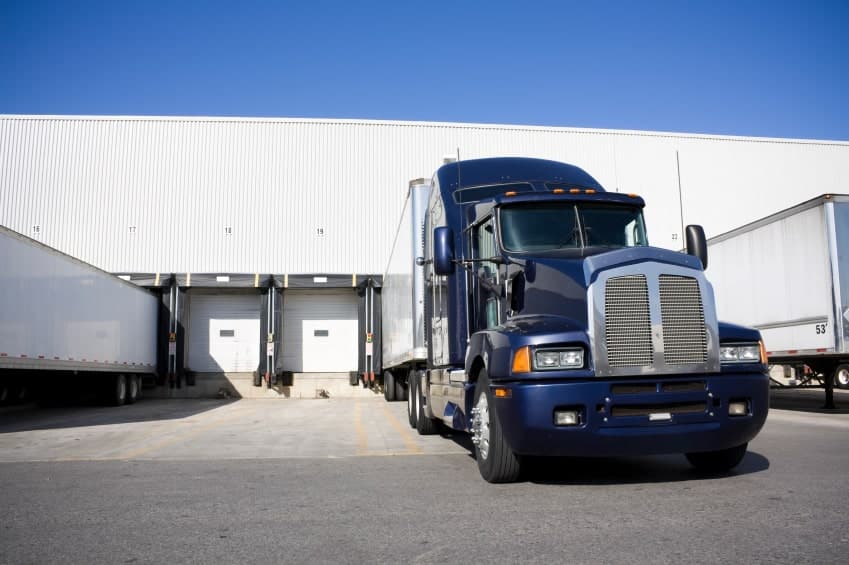Truck Cargo Insurance 101
Truck cargo insurance protects your business. The heart of every trucker’s haul is the cargo that they carefully transport from loading centers to terminals around the world. When damage or theft occurs, your business’s reputation is on the line.

What happens if vital goods are stolen or damaged during transport?
You’ll want to ensure that the client is reimbursed so that there is no loss on your client’s end. A loss that is avoidable should never occur. This is the basis of cargo insurance: protecting your reputation and client.
Anything can happen during transport. Goods can be damaged even when there isn’t an accident involved.
But if an accident does occur, the entire load can be damaged or destroyed in many cases. Cargo insurance will protect your business against these unexpected losses. The entirety of the cargo that’s being hauled will be insured.
Not All Goods Are Covered by Cargo Insurance
Having insurance doesn’t mean that your goods are automatically covered by your policy. There are some items, often referred to as “commodities,” that are not covered by insurance.
You’ll have a difficult time finding insurance for goods that are targeted by thieves, including:
- Tobacco
- Jewelry
- Alcohol
If you receive a load for one of these highly valuable hauls, you’ll need to call your cargo insurer to ensure that your goods are covered by your insurance policy. There’s also the consideration that your goods may be too valuable.
The cargo insurance cost will be much lower if your goods are valued at $50,000 compared to cargo valued at $3 million.
Cargo Insurance Coverage Specifics

Your policy needs to be examined to ensure that what you’re hauling is covered. There are circumstances when even if an item is covered, it’s only covered if it’s damaged in transport – not stolen.
The best insurance policy will cover your goods no matter the circumstance.
A few of the circumstances where your goods may not be covered include:
- Goods are stolen or hijacked
- Cargo is damaged from a leaking trailer
- Cargo is damaged during the loading or unloading of goods
- Transfers of goods to another truck if your truck breaks down in transit
- Cargo is spoiled because of a refrigeration breakdown
If an accident does occur, insurance may cover your cargo that’s been damaged in the trailer, but what happens with the debris from the accident? Who is responsible for the cleanup costs?
Your insurance may be on the hook, or you may be on the hook for debris cleanup.
Debris removal coverage is a must-have and will protect your business in the event of an accident. This coverage, included in your cargo insurance, will protect against debris removal. Debris that’s been thrown around can cause further damage and may shut down a roadway for hours, which will cost tens of thousands of dollars to clean up.
If your insurance policy doesn’t include this key coverage, you’ll be responsible for the entirety of the costs.
Rates Vary, Depending on State, Needs and Provider
The cost of cargo insurance varies widely from one provider to the next. Every state is different, too. If you’re transporting goods in a highly trafficked city, you’ll more than likely pay a much higher insurance rate than if you’re transporting goods in a rural area.
Your maximum and minimum limits will also impact your policy rate.
MCS 90 coverage requirements may also impact your policy rates.
Custom quotes for your insurance policy are most common. These quotes will provide you with a better understanding of your coverage limits and their impact on your overall insurance costs.
Limit Ranges for Most Policies
The limits that are available under most policies range from $10,000 – $100,000. While this range is rather small, depending on the goods being transported, the range can also go well above the $100,000 mark.
A lot of clients will require a copy of your cargo insurance policy.
This copy is to be presented when you arrive at the pickup point. If you don’t have a copy of your insurance, the client may refuse to use your trucking company to transport their goods. This may mean a significant loss in business.
Experienced insurance agents are the best point of contact when trying to obtain a policy for your trucking company.
Insurers Offering Cargo Insurance
The first person to call is your current insurance agent to ask if your insurer offers cargo insurance, too. If the insurer does offer cargo insurance, you may be able to bundle the insurance to lower your insurance costs.
Insurers that offer cargo insurance, and there are many others, include:
- Progressive Commercial
- National Indemnity Company
These are two of the leading insurers. A good example of goods that may not be covered under a policy can be seen with Progressive. The company is very open about the exceptions and restrictions that the company has on the goods that they cover.
A few of the items that are not covered by the insurance policy are:
- Goods owned by the insured person
- Paper, money and jewelry
- Tobacco, alcohol and contraband
- Pharmaceuticals
- Live animals
- Property not listed on the Bill of Lading
- Explosive material
- Radioactive material
- Shipping containers
The company is very careful to mention that there may be other exclusions that apply to your policy. If you have goods that are not within your policy, you will want to contact your insurer to ask if your cargo is covered by the insurer.
In the event that the cargo is not covered, you may have to choose not to take the load.
If the client asks you for a copy of your insurance and finds that their cargo is excluded from your policy, you may be required to obtain additional coverage.
National Indemnity also offers additional coverage options which may be added to your policy. These additional options include:
- Loading and unloading coverage
- Refrigeration breakdown coverage
- Earned freight coverage
In an ideal situation, you’ll have all three of these additional coverages added to your policy. These coverage options provide the added policy inclusions that are very costly if they’re not included in a policy.


